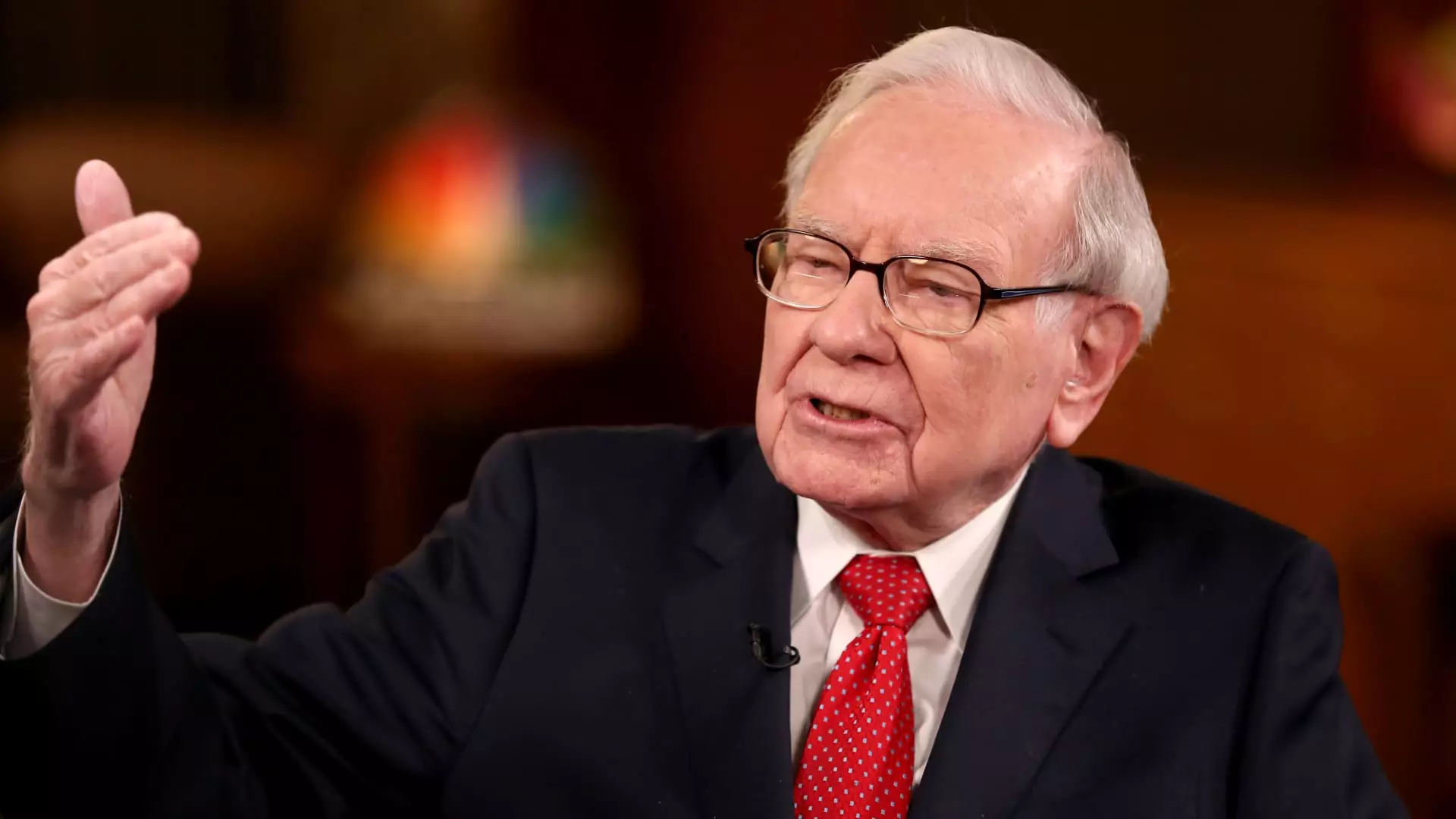In an age where information travels faster than the speed of light, the potential for misinformation to proliferate has reached unprecedented levels. Recently, social media lit up after former President Donald Trump shared a video on Truth Social that suggested he was intentionally crashing the stock market, citing endorsements from none other than investment mogul Warren Buffett. To the savvy observer, this video exemplifies the dangerous cocktail of populism and misinformation that can lead to severe misunderstandings of economic reality. How do fact and fiction collide in this perilous arena, and what are the implications for the average consumer and investor?
The video, which has circulated widely on platforms like Truth Social and Twitter, posits that Trump’s economic approach is a deliberate strategy to lower interest and mortgage rates. This convoluted claim positions him as not merely a bystander in market fluctuations but, rather, as the orchestrator of a massive economic chess game. However, the assertion quickly falls apart—in a moment of poetic irony, the very basis of the claim hangs precariously on the misattributed endorsement of Buffett, a figure whose own views on economic policy starkly contrast with the narrative being spun.
Buffett’s Response: A Stand Against Falsehoods
In direct response to Trump’s claims, Buffett and his conglomerate, Berkshire Hathaway, issued a forceful statement denying any association with or endorsement of the video’s misleading narrative. Their assertion is clear: “All such reports are false.” This direct repudiation serves as an urgent reminder of the importance of accountability in public discourse. Buffett’s response reflects not only a protective stance over his reputation but also a broader commitment to maintaining ethical standards in an environment rife with sensationalism.
Buffett’s statement resonates deeply, especially amid an internet landscape characterized by echo chambers. His refusal to engage in speculation about the stock market or economic policies ahead of Berkshire’s upcoming meeting underscores a diligent approach to misinformation. In a world where soundbites can be converted into misleading propaganda, the need for public figures to clarify their stance has never been more critical.
The Broader Implications of Economic Policies
Beyond the confines of social media blunders, this incident sheds light on more profound questions about economic policy under past administrations. Buffett has long been an advocate for free trade, viewing tariffs as detrimental to not just the U.S. economy but to the global economic landscape. His perspective is one of wisdom cultivated over decades, understanding that actions taken today will yield repercussions tomorrow. The notion that deliberate market manipulation could be an effective strategy belies a fundamental misunderstanding of economic principles and the interconnected global marketplace.
Buffett’s criticism of tariffs as “an act of war” showcases that he views economic strategies through a lens of consequence—where the ripple effects of policy decisions can lead to far-reaching pain. When considering the mechanics of the stock market, understanding these nuances becomes essential for investors who seek not just wealth accumulation but also stability and longevity in their investments.
Public Figures and the Responsibility of Influence
The responsibility resting on the shoulders of public figures is immense, especially in economic matters where misrepresentation can lead to real-world consequences. As influencers of opinion, their statements hold sway over the perceptions of millions, potentially encouraging or damaging the financial decisions of countless individuals. Trump’s flippant sharing of a video based on unverified claims illustrates a broader pattern of disregard for the ramifications of misinformation.
In an era where the line between opinion and fact is often blurred, it is crucial for consumers of news to remain skeptical and discerning. The conflation of celebrity, politics, and financial discourse can create a toxic environment where misinformation flourishes, ultimately hampering informed decision-making that is vital for a functional and equitable economic landscape.
As we navigate this intricate web of information, one thing remains clear: The truth remains an invaluable currency, yet its procurement requires vigilance, skepticism, and a commitment to understanding the complex world we inhabit.

